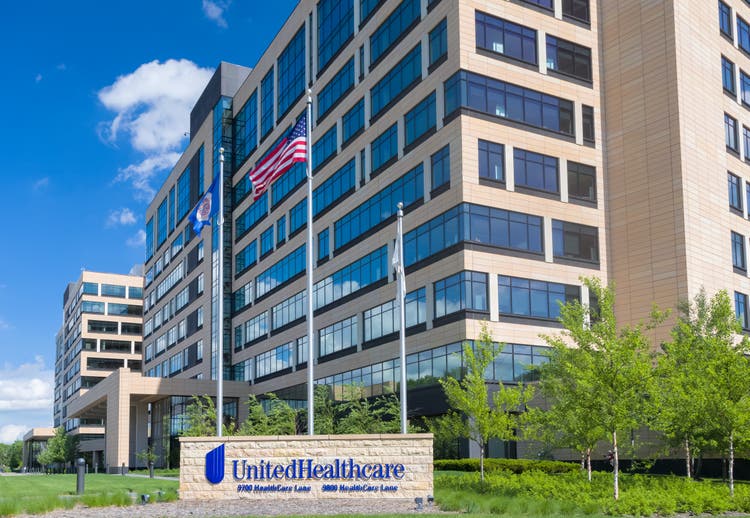Wolterk
Listen below or on the go on Apple Podcasts and Spotify
The company denies it paid facilities to cut hospital transfers. (0:15) Target lowers guidance. (1:57) The only sector hitting new highs is still a Buy. (4:20)
This is an abridged transcript of the podcast:
Our top story so far, UnitedHealth Group (NYSE:UNH) is under pressure again after The Guardian reported that the managed care giant secretly paid nursing homes that helped it win Medicare enrollees and cut hospital transfers for sick patients.
The paper said that UNH paid thousands of dollars in bonuses to the facilities as part of a cost-cutting drive that saved it millions of dollars, but in some cases, put residents’ health at risk.
The payments were linked to a company program under which its own medical teams were operating from nursing homes, helping the facilities to cut expenses attributed to its enrollees, The Guardian reported.
The report was based on thousands of secret corporate and patient records and two whistleblower declarations presented to Congress this month. More than 20 current and former UnitedHealth and nursing home employees also gave details of the alleged practices.
The company denied the allegations, noting that any suggestion implying that its staffers were involved in preventing hospital transfers “is verifiably false.” Its payments to nursing homes help avoid unnecessary hospitalizations, and its partnerships help the facilities to improve health outcomes, UnitedHealth added.
Last week, UNH shares ended an eight-day losing streak amid insider purchases following the abrupt resignation of former CEO Andrew Witty and a WSJ report about a DoJ criminal probe against the company.
HSBC cut the stock to Reduce citing concerns related to the leadership change, pulled 2025 guidance, and alleged Medicare fraud.
Analysts said: “The downside risk on 2025e adjusted EPS has increased post guidance cancellation, giving the new CEO a kitchen sinking opportunity. We also see potential recovery getting delayed, as reflected in our 2026-27e estimate cuts.”
Among active stocks, Target (TGT) posted weaker-than-anticipated Q1 results and lowered its full-year guidance. Comparable sales decreased -3.8% during the quarter to miss the consensus expectation for a drop of -1.9%. Notably, Target said it held or gained market share in just 15 of the 35 categories it tracks.
Looking ahead, Target expects full-year EPS of $7.00 to $9.00 (midpoint $8.00) vs. the consensus mark of $8.34. Target (TGT) expects net revenue growth in the low-single digit rate. CEO Brian Cornell said that Target will try to use tariff mitigation strategies to avoid raising prices.
Lowe’s (LOW) beat consensus estimates with its Q1 earnings report and stuck by its full-year guidance despite the macroeconomic backdrop.
Lowe’s said it expects total sales of approximately $83.5 billion to $84.5 billion ($84.0 billion midpoint) for the full year vs. $84.3 billion consensus, comparable sales to be flat to +1.0% compared to a year ago, and adjusted EPS of $12.15 to $12.40 (midpoint $12.275) vs. $12.21 consensus.
And Wolfspeed (WOLF) crashed more than 60% after The Wall Street Journal reported that the company has prepared to file bankruptcy in the next few weeks.
Wolfspeed, which produces silicon carbide used in electric vehicles, data centers and other applications, had been considering a possible debt restructuring plan, and several junior creditors and other investors were in discussions to offer rescue financing. That now appears that has fallen through, the Journal said.
In other news of note, Manchester United (MANU) could see some trading volatility on Thursday following the club’s Europa League final match against Tottenham Hotspur.
Both United and Spurs have had dreadful Premier League seasons, but the winner of the Europa League qualifies for the Champion’s League next season and will see a major financial windfall. There is also extra drama because the loser of the match will not play in Europe at any level next year.
Champions League play guarantees participants payouts from UEFA and additional money is paid out for every tie and win, as well as a percentage of TV revenue. Teams that advance in the tournament can add to their coffers. Sportico estimated that the winner of the Manchester United-Tottenham game is lined up for at least $100 million in extra revenue.
Last year, publicly traded Man United generated $777.1 million in revenue, which was down from the prior two years. A major consideration with the stock in the past has been the success in the Champion’s League – but staving off relegation next year might be a more realistic goal.
And in the Wall Street Research Corner, the Industrials (XLI) sector is the only sector currently hitting new all-time highs, but still looks attractive, according to Societe Generale.
Cross-asset strategist Manish Kabra says reshoring pledges are helping the S&P sector, while the aerospace and defense subsector (ITA) (XAR) (PPA) is cheaper on a PEG ratio compared to its global peers.
Kabra recommends staying Overweight Industrials (with a domestic bias), along with Financials (XLF) and Utilities (XLU).
Longer term, he recommends rotating out of the Nasdaq 100 (QQQ), which is expensive and exposed to reshuffling supply chains, and into the S&P 500 Equal Weight (RSP), which is less expensive and exposed to higher U.S. nominal growth.
#Wall #Street #Lunch #UnitedHealth #Pressure #Alleged #Nursing #Home #Payments
